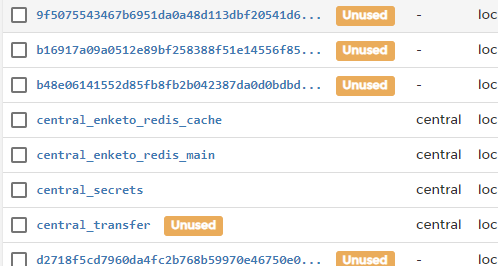- Installed 1.0 over a running 0.9.
- docker ps all looks healthy
- Tried to add user (why are data and setting not made persistent in Docker?)
Error as below. Reverted to 0.9
root@ubuntu-server:~/central# docker-compose exec service odk-cmd --email my.name@myname.de user-create
prompt: password: ********
error: insert into "actees" ("id", "species") values ($1, $2) returning * - relation "actees" does not exist
at Parser.parseErrorMessage (/usr/odk/node_modules/pg-protocol/dist/parser.js:241:15)
at Parser.handlePacket (/usr/odk/node_modules/pg-protocol/dist/parser.js:89:29)
at Parser.parse (/usr/odk/node_modules/pg-protocol/dist/parser.js:41:38)
at Socket.<anonymous> (/usr/odk/node_modules/pg-protocol/dist/index.js:8:42)
at Socket.emit (events.js:203:13)
at addChunk (_stream_readable.js:294:12)
at readableAddChunk (_stream_readable.js:275:11)
at Socket.Readable.push (_stream_readable.js:210:10)
at TCP.onStreamRead (internal/stream_base_commons.js:166:17) {